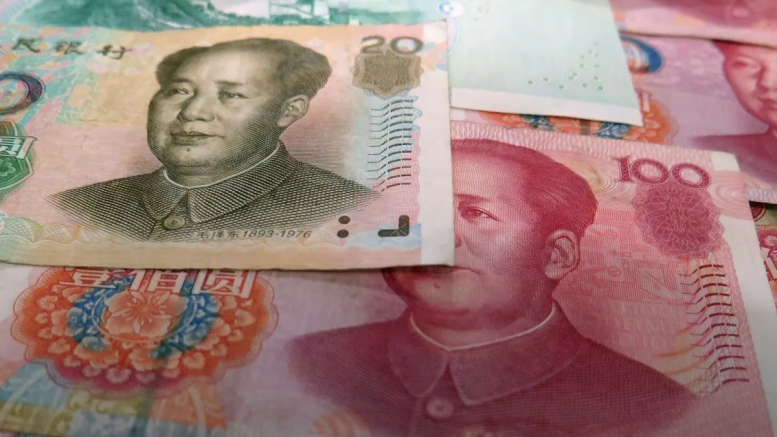“We understand that there is enough liquidity to absorb the expected demand for the Brazilian market…”
Leonardo Oliveira is an executive director of the Bank BOCOM BBM, graduated in civil engineering from the Federal University of Rio de Janeiro. Oliveira was appointed vice president of the BOCOM BBM Executive Committee in October of 2021.

Leonardo Oliveira, executive director of BOCOM BBM
AgriBrasilis – When will commercial operations without the use of dollars between China and Brazil start? What steps still need to be taken?
Leonardo Oliveira – We have been able to offer exchange operations and derivatives in CNY/RMB [Chinese yuan, or renminbi] since the end of last year, but with some restrictions on times and deadlines for settlement. We expect the tool to be fully operational in the 2nd half of 2023. There are still some integrations of systems and IT infrastructure to be done.
AgriBrasilis – What is BOCOM BBM and how did it come about? What is its participation in Brazil?
Leonardo Oliveira – BOCOM BBM has its origins in two financial institutions with long histories in China and Brazil, the Bank of Communications, one of the five largest commercial banks in China, and BBM. We operate in the granting of credit and financial services to companies in the SME [small and medium enterprises], corporate and large corporate segments, in addition to structuring capital market operations and financial hedging for companies established in Brazil and abroad.
AgriBrasilis – BOCOM BBM was the first institution in South America accredited to operate through the China Interbank Payment System. What is the role of this platform?
Leonardo Oliveira – CIPS aims to facilitate the use of Chinese currency in international transactions, contributing to expanding business opportunities between China and other countries in the world. Participation of BOCOM BBM as a full member of CIPS contributes to promoting greater use of the renminbi in commercial and financial transactions between the two countries, considering the growing importance of China as a destination for Brazilian exports and the expansion of Chinese enterprises and investment flows in the country.
AgriBrasilis – How will the value of exchange rates be calculated, and by which institutions?
Leonardo Oliveira – Currently, CIPS already has the participation of more than 1300 indirect participants in more than 100 countries. Therefore, there is already a broad and active market capable of providing the necessary liquidity for quotations from several currency pairs with the RMB, including the BRL.
It is up to us to show the advantages of using this platform to customers. Among them are greater operational agility, less friction in rate conversions on the parties involved, that is, greater price competitiveness, less bureaucracy for Brazilian and Chinese customers, in addition to the possibility of developing solutions designed for the characteristics of this bilateral trade.
Finally, customers will always be able to compare the different existing alternatives and choose the one they consider the best.
AgriBrasilis – What are the consequences for the market and their effects on transaction costs?
Leonardo Oliveira – This agreement will strengthen Brazil-China trade relations by reducing the number of foreign exchange operations to just one commercial transaction, eliminating the need to anchor the dollar. It will enable the reduction of direct transaction costs between the renminbi (CNY) and the Brazilian Real, a greater offer of protection operations (hedge) of exchange variation between the currencies and financial settlement of intraday operations, 24 hours a day. Under the current model, these operations take 2 business days and are limited to trading hours in each local market.
AgriBrasilis – Are the exchange rate and liquidity risks greater for this type of operation? Why?
Leonardo Oliveira – No. We understand that there is sufficient liquidity to absorb the expected demand for the Brazilian RMB transaction market. In 2022, the Brazil-China trade chain reached US$ 150 billion. That same year, something like RMB 96 trillion was transacted via CIPS, or about US$ 14 trillion.
There are complementary product structures such as NDFs [Non-Deliverable Forward, or Currency Term Contract without Physical Delivery] from CNY to BRL that mitigate exchange rate risks and generate cash flow predictability for Brazilian companies that are seeking better commercial conditions with its Chinese partners. In addition, there will always be the possibility of comparison with existing alternatives. Another factor is that, at the time of contracting, the operation parameters will be guaranteed by the participating banking institutions.
The power of choice, as always, lies with customers, who must realize the value of this new product. This platform allows payment for purchases and sales directly in mainland China, providing commercial advantages to Brazilian companies. We believe that joining the platform is in line with the interest of reducing bureaucracy and facilitating exchange between countries and will be complementary to existing alternatives.
AgriBrasilis – What other countries have already adopted trade without the dollar interference? How are these other systems performing?
Leonardo Oliveira – There are several regional initiatives with the aim of promoting trade between countries that have been developed in recent years. The Local Currency Payment System (SML) between members of Mercosur is one of them. The Brazilian government itself reinforced this in the recent visit to Argentina.
In the last decade, the use of RMB has shown increasing evolution, reaching about 3% of current transactions. Even so, the dollar and the euro represent 80% of international transactions and the CIPS initiative is to create more options for companies and countries, reflecting the increase in trade between them.
AgriBrasilis – China has been Brazil’s biggest trading partner since 2009. Why is this measure only now being implemented? What does this news mean for relations between Brazil, China, and the US?
Leonardo Oliveira – CIPS is an initiative created by the People’s Bank of China in 2012 and seeks to reflect the increasing weight of China and the RMB in global trade. It is constantly evolving, and its implementation takes place in phases, with the first phase being completed in 2015, when 195 institutions from 50 countries joined the system, and the second, in 2018, expanding trading hours.
Our country can only gain by increasing the trade flow and connectivity with the US and China and with the dollar and the RMB. In addition to being our main trading partners, these countries have economies that complement Brazil’s. The benefits to Brazilian companies are enormous.

